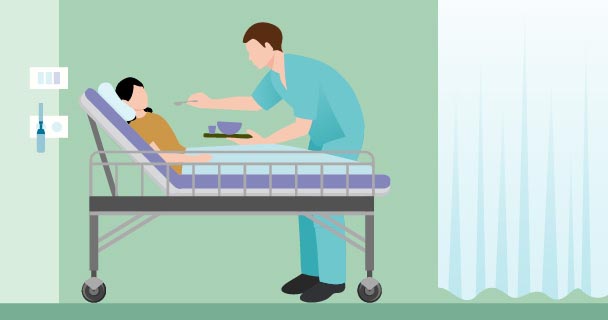blog


As a nurse, you learn from an early stage in your career that patient safety is a nurse’s top priority.
Nurses are at the bedside, monitoring and caring for patients 24/7. Nursing is an occupation that has long been revered because we are a specialized profession that utilizes our knowledge as well as compassion to provide care for people when they are in their most vulnerable state.
One of my earliest memories of patient safety in nursing school was when we were preparing to administer medications. Prior to being able to administer any medications, we had to successfully complete our pharmacology class. We had to have a working knowledge of different drug classes and how they affected the body. Even when we had completed the class and mastered different administration routes (such as oral versus intramuscular), we were not quite yet fully prepared to administer medications.
Prior to administering each medication, we had to ensure we understood the indication, any potential side effects, and any important monitoring that must be done. Once we were prepared, we then had to verify the five rights of medication administration (the right patient, drug, dose, route, and time). This process occurred for every patient and every medication we administered.
While it may seem like a burdensome practice to some, it is all in the name of patient safety. Nurses do not simply follow orders. We are expected to assess, treat, and evaluate our patients. We need to have a deep understanding of how and why we are treating patients and how that treatment affects our patients.
The above example is one of the most rudimentary ways in which nurses play a role in patient safety; however, it sets the precedent for how we approach patient care in every other way. Even the most seemingly simple of tasks requires careful planning and understanding. Whether you are administering Tylenol for a headache or administering chemotherapy for a patient’s first round in the fight for their life, introducing yourself when you meet a patient for the first time or reporting an assessment finding that prevents a code from occurring, you are always taking the steps to ensure every aspect of your patient’s safety is upheld.
About the Author
Nicole Kraut currently works as a RN on a medical-oncology unit in Chicago, Illinois. She serves as the night shift Team Leader for the unit, in which she serves as the charge nurse and participates in leadership activities. She has been a RN for over five years. Nicole shares, “I have had the opportunity to be a new hire preceptor and have worked with fourteen new hire staff RNs. Along with being a preceptor, I have been a facilitator for our New Graduate Mentor Program, which allows new graduate nurses a place to meet once a month to learn from each other and to share their experiences.”
Nicole graduated with her Bachelor of Science in Nursing from Loyola University Chicago and recently obtained a Master of Science in Nursing with an Emphasis in Nursing Education from Grand Canyon University. She “was inspired to become a nurse because I wanted to work in a career field in which I could make a difference in people’s lives on a daily basis. I feel nursing is my vocation and am passionate about sharing my knowledge and experience in order to positively influence others.”
Contact HealthStream to speak to a solutions expert learn more about our courses related to Patient Safety.
HealthStream’s learning management system and healthcare training solutions support medical training initiatives and allow for the best patient care.
View All Learning & PerformanceExpand the decision-making skills and effectiveness of your healthcare workforce with HealthStream's workforce development programs and services.
View All Clinical DevelopmentComprehensive, industry-leading provider onboarding and credentialing software that validates health outcomes and supports provider assessment.
View All CredentialingMake sure your healthcare staff can schedule out appointments and work schedules with ease using our line of nurse scheduling software solutions.
View All SchedulingWhen you enact HealthStream's quality compliance solutions, you can do so with the confidence your healthcare organization will meet all standards of care.
View All Quality & ComplianceUtilize patient access solutions and advanced reimbursement solutions to manage clinical denials and improve your organization’s reimbursement strategy.
View All ReimbursementLearn about our advanced resuscitation training solutions. Our solutions are designed to help improve patient outcomes.
View All Resuscitation